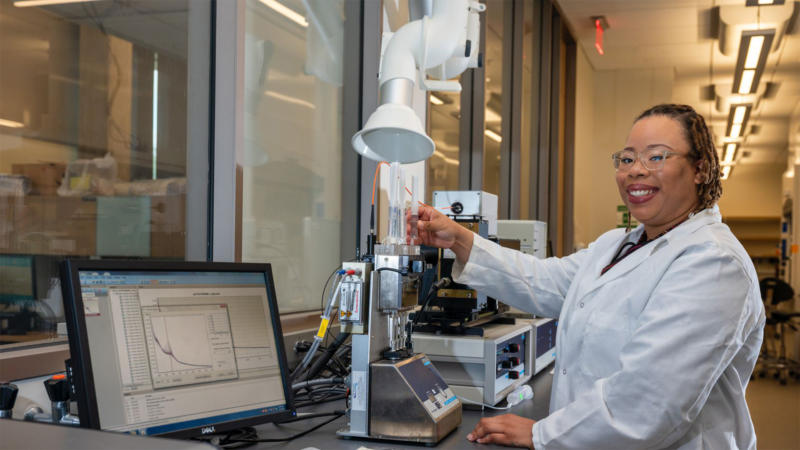Graduate researcher Lindsay Davis made history as the first African American student to earn a Ph.D. in chemistry at The University of Texas at Arlington (UTA), according to a press release.
“It feels good to be a trailblazer,” Lindsay Davis shared in a UTA press release. “I am proud to set an example for underrepresented minorities who dream of using their STEM talents to make the world a better place.”
Davis’ involvement in STEM research centers on treatments for tuberculosis (TB), an infectious disease commonly impacting the lungs.
“We want to understand on a molecular level how FGD operates, since it is the target for further drug development for multiple drug-resistant forms of TB,” Davis revealed in a UTA press release. “Once we discover the mode of action of FGD, researchers can create treatments that more effectively target the enzyme and cure patients with drug-resistant strains of TB.”
Davis’ extensive research has propelled mentorship opportunities for two women of color, providing the mentees with visibility and support in a sector that oftentimes neglect minorities. And it’s no secret that Black workers remain heavily underrepresented in STEM. Pew Research Center previously reported that Black people “make up 11% of the U.S. workforce overall but represent 9% of STEM workers.”
The mistreatment of Black students ostracizes their involvement in the STEM field discouraging academic and research pursuits which inflates feelings of insecurity.
“I have struggled with imposter syndrome throughout my academic career. There are days when I don’t feel good enough or smart enough,” she said, according to Dallas Morning News.
Lindsay Davis was fortunate to be mentored by female scientists from the institution who encouraged her during creeping moments of doubt.
“Life comes full circle,” Davis said. “My experiences at UTA have equipped me to encourage other students like me to become the next generation of scientists, mathematicians and engineers. Thankfully, my mentors at UTA are brilliant female scientists. Their research accomplishments inspire me to keep going.”
The recent Maverick alumni plans to return to Langston University — a historically Black university in Oklahoma — to further develop the STEM program. Her hope is that her journey will inspire Black students to pursue careers in STEM despite the systemic odds against them.
“The goal is to reach back and grab somebody else and train them and bring them along,” Davis’ academic advisor Dr. Kayunta Johnson-Winter disclosed to CBS DFW.


